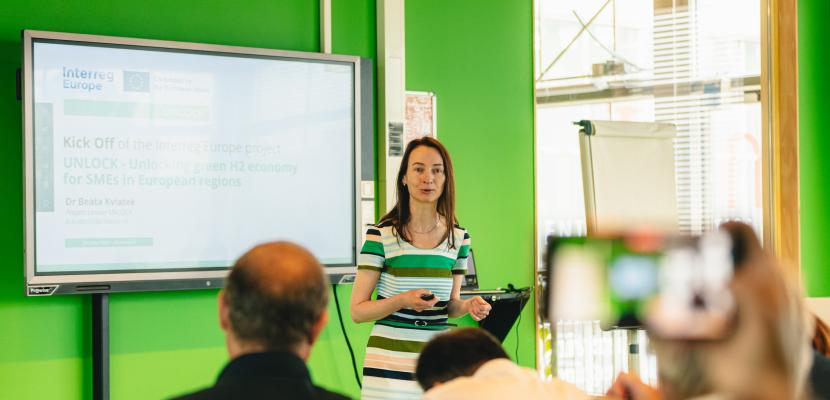
Collaboration in H2 education for stronger hydrogen economy

About this good practice
In the coming years, Northern Netherlands are set to become the hub of the hydrogen economy, thanks to significant investments from both the government and private sector. This transformation will bring numerous benefits to the region, including economic growth, technological innovation, and increased job opportunities. To ensure the success of developing regional hydrogen economy, it is crucial to meet demand for a workforce with the necessary skills and expertise.
The Hydrogen Works initiative, spearheaded by the New Energy Coalition (NEC) in partnership with educational institutions and industry, is set to boost regional education in the field of hydrogen economy. The involved educational institutions in the region are working together on a coordinated approach in preparing new hydrogen professionals. This includes education, training, and courses at vocational, higher professional, university, and advanced professional levels. Collaboration between businesses, social organizations, knowledge institutions, and governments ensures the quality of educational activities, the alignment of educational programmes with the regional hydrogen economy needs, and the sustainability after the end of a subsidy period.
The consortium of 4 educational institutions (ROC Alfa-college, ROC Noorderpoort, Hanze University AS, University of Groningen) and the New Energy Coalition, is partnering with 36 organisations: local authorities, companies, industries, SMEs networks, and programmes.
Expert opinion
Resources needed
Total budget: € 7.177.610
Contribution by the Province of Groningen through National Program Groningen (NPG): €3,000,000. The NPG contributes to projects that often extend beyond municipal boundaries, addressing social issues in the fields of Energy, Rural Area, Health, Education and Labor Market.
Evidence of success
Established collaboration among different educational institutions, from vocational to universities, on common approach to H2 education. In 5 years over 1,000 experts will be trained, from which 1/3 retrained (325 energy experts, who lost jobs due to the reduction of gas extraction in Groningen). In 5 years - at least 100 hydrogen-related internships for vocational students, 50 company traineeships for higher education students, and 125 students working in the Innovation Lab at ENTRANCE.
Potential for learning or transfer
The initiative is still going on, with funds available till 2027, and is expected to sustain after the end of financing period, because it establishes working relations of mutual interest. The established collaboration between regional educational institutions and businesses enables to develop a more demand-driven knowledge supply and, by the same, supports hydrogen investments, applications, and acceptance. Through curriculum adaptation and offering learning pathways with businesses and other stakeholders, regional educational institutions will contribute to the competitiveness of regions.
The collaborative initiative is not place specific and can be transferred to other regions in Europe. Other regional authorities can incentivize establishment of regional cooperation among different type of educational institutions, in partnership with businesses, in reply to the emerging knowledge demand for jobs in the sustainable energy sector and the hydrogen economy in particular as well.
Further information
Good practice owner
You can contact the good practice owner below for more detailed information.
